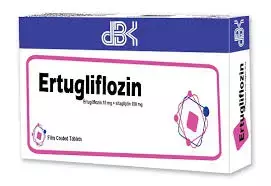- Home
- Medical news & Guidelines
- Anesthesiology
- Cardiology and CTVS
- Critical Care
- Dentistry
- Dermatology
- Diabetes and Endocrinology
- ENT
- Gastroenterology
- Medicine
- Nephrology
- Neurology
- Obstretics-Gynaecology
- Oncology
- Ophthalmology
- Orthopaedics
- Pediatrics-Neonatology
- Psychiatry
- Pulmonology
- Radiology
- Surgery
- Urology
- Laboratory Medicine
- Diet
- Nursing
- Paramedical
- Physiotherapy
- Health news
- Fact Check
- Bone Health Fact Check
- Brain Health Fact Check
- Cancer Related Fact Check
- Child Care Fact Check
- Dental and oral health fact check
- Diabetes and metabolic health fact check
- Diet and Nutrition Fact Check
- Eye and ENT Care Fact Check
- Fitness fact check
- Gut health fact check
- Heart health fact check
- Kidney health fact check
- Medical education fact check
- Men's health fact check
- Respiratory fact check
- Skin and hair care fact check
- Vaccine and Immunization fact check
- Women's health fact check
- AYUSH
- State News
- Andaman and Nicobar Islands
- Andhra Pradesh
- Arunachal Pradesh
- Assam
- Bihar
- Chandigarh
- Chattisgarh
- Dadra and Nagar Haveli
- Daman and Diu
- Delhi
- Goa
- Gujarat
- Haryana
- Himachal Pradesh
- Jammu & Kashmir
- Jharkhand
- Karnataka
- Kerala
- Ladakh
- Lakshadweep
- Madhya Pradesh
- Maharashtra
- Manipur
- Meghalaya
- Mizoram
- Nagaland
- Odisha
- Puducherry
- Punjab
- Rajasthan
- Sikkim
- Tamil Nadu
- Telangana
- Tripura
- Uttar Pradesh
- Uttrakhand
- West Bengal
- Medical Education
- Industry
Ertugliflozin Shows Better Renal Outcomes in diabetes patients with atherosclerotic CVD

Ertugliflozin is a selective inhibitor of sodium-glucose cotransporter 2 (SGLT2), is an approved glucose-lowering therapy in type 2 diabetes mellitus. SGLT2 inhibitors induce other physiological effects, including natriuresis, contributing to lowering BP and beneficial effects on kidney function. In a recent study, researchers have reported that ertugliflozin reduced the risk for the pre-specified exploratory composite renal endpoint in patients with type 2 diabetes and atherosclerotic Cardiovascular Disease (CVD). The research has been published in the journal Diabetologia on March 04, 2021.
In the eValuation of ERTugliflozin effIcacy and Safety CardioVascular outcomes (VERTIS CV) trial, researchers have reported the HR for the risk of the secondary kidney composite endpoint (time to the first event of doubling of serum creatinine from baseline, renal dialysis/transplant or renal death) with ertugliflozin compared with placebo as 0.81which is not significant. These findings suggested that ertugliflozin broke ranks with the other drugs in its class and failed to produce statistically significant drops in the both the combined incidence of cardiovascular (CV) death or heart failure hospitalization, and the rate of adverse renal outcomes. However, in this present study researchers have found evidence in favour of ertugliflozin's CV and renal outcomes.
Dr David Z. I. Cherney, MD, PhD and his team, conducted a study to explore the effects of ertugliflozin on pre-specified exploratory kidney endpoints in the overall VERTIS CV trial population and according to baseline kidney function status. They also evaluated the effect of ertugliflozin on the incidence of acute kidney failure-related adverse events.
The VERTIS CV trial was a prospective, multicentre, randomised, double-blind, placebo-controlled trial of 8246 individuals with type 2 diabetes mellitus and established atherosclerotic CVD. They were randomised to receive ertugliflozin 5 mg or 15 mg or a matching placebo, added to the existing treatment. The kidney composite outcome in VERTIS CV was time to the first event of doubling of serum creatinine from baseline, renal dialysis/transplant or renal death. The pre-specified exploratory composite outcome replaced the doubling of serum creatinine with a sustained 40% decrease from baseline in eGFR. They also evaluated the impact of ertugliflozin on urinary albumin/creatinine ratio (UACR) and eGFR over time.
Key findings of the study were:
- The authors reported that the new exploratory analyses are a composite of time to a sustained 40% reduction from baseline in estimated glomerular filtration rate (eGFR) or time to renal dialysis, transplant, or death, the incidence for which was a significant 34% lower with ertugliflozin treatment compared with placebo during a mean 3.5 years of follow-up.
- At 60 months, they noted that in the ertugliflozin group, placebo-corrected changes from baseline in UACR and eGFR were −16.2% and 2.6 ml min−1, respectively.
- These findings contrast with the result of the key secondary composite kidney endpoint in VERTIS CV, reported in 2020 along with the trial's other main results, which showed a 19% point estimate for fewer renal events relative to a placebo that was not significant.
- They found that the ertugliflozin was associated with a consistent decrease in UACR and attenuation of eGFR decline across subgroups.
The authors concluded, "Ertugliflozin was associated with a decrease in the risk of a sustained 40% decline in eGFR, with less albuminuria and with preservation of eGFR over time in individuals with type 2 diabetes and established atherosclerotic CVD. Observations from the VERTIS CV study suggest that the effects of ertugliflozin on the kidneys are generally consistent with the known benefits of SGLT2 inhibitors."
For further information:
Medical Dialogues Bureau consists of a team of passionate medical/scientific writers, led by doctors and healthcare researchers. Our team efforts to bring you updated and timely news about the important happenings of the medical and healthcare sector. Our editorial team can be reached at editorial@medicaldialogues.in.
Dr Kamal Kant Kohli-MBBS, DTCD- a chest specialist with more than 30 years of practice and a flair for writing clinical articles, Dr Kamal Kant Kohli joined Medical Dialogues as a Chief Editor of Medical News. Besides writing articles, as an editor, he proofreads and verifies all the medical content published on Medical Dialogues including those coming from journals, studies,medical conferences,guidelines etc. Email: drkohli@medicaldialogues.in. Contact no. 011-43720751


